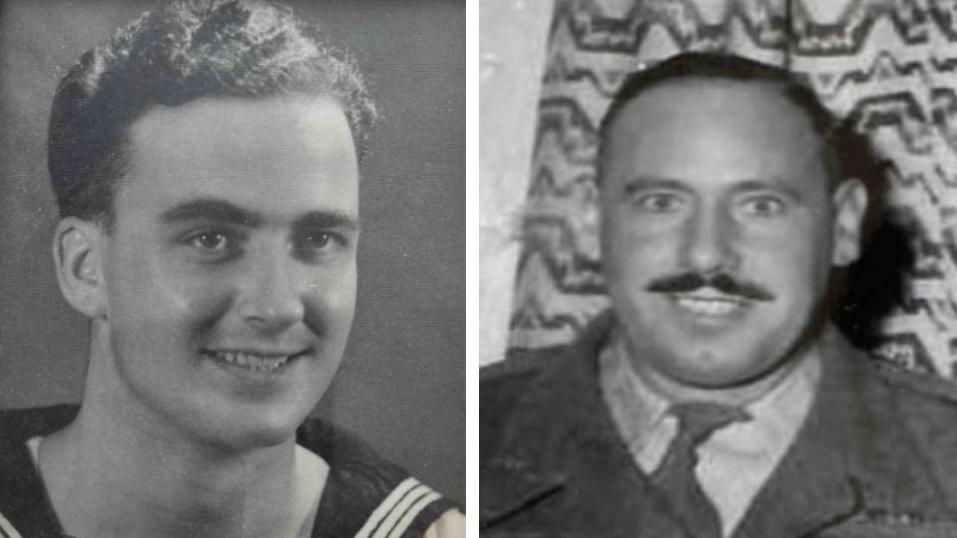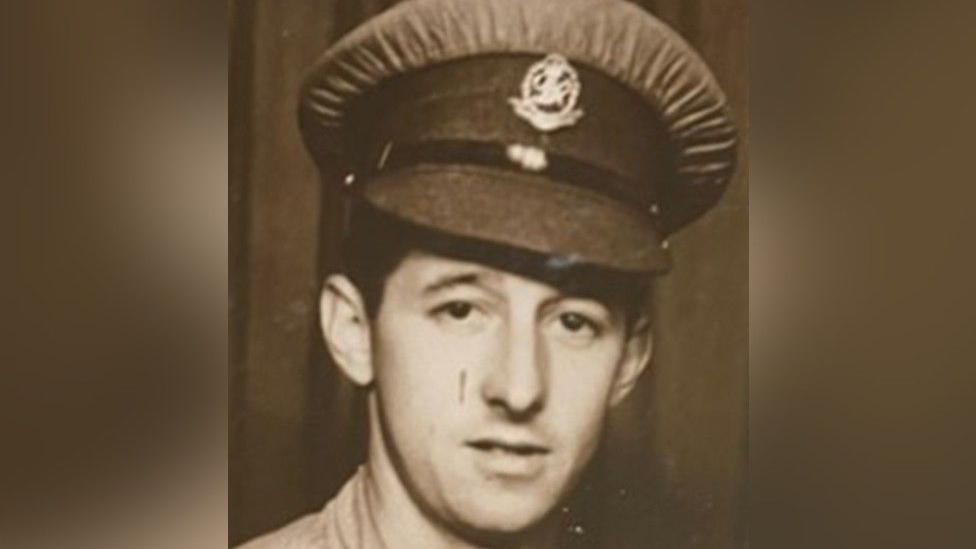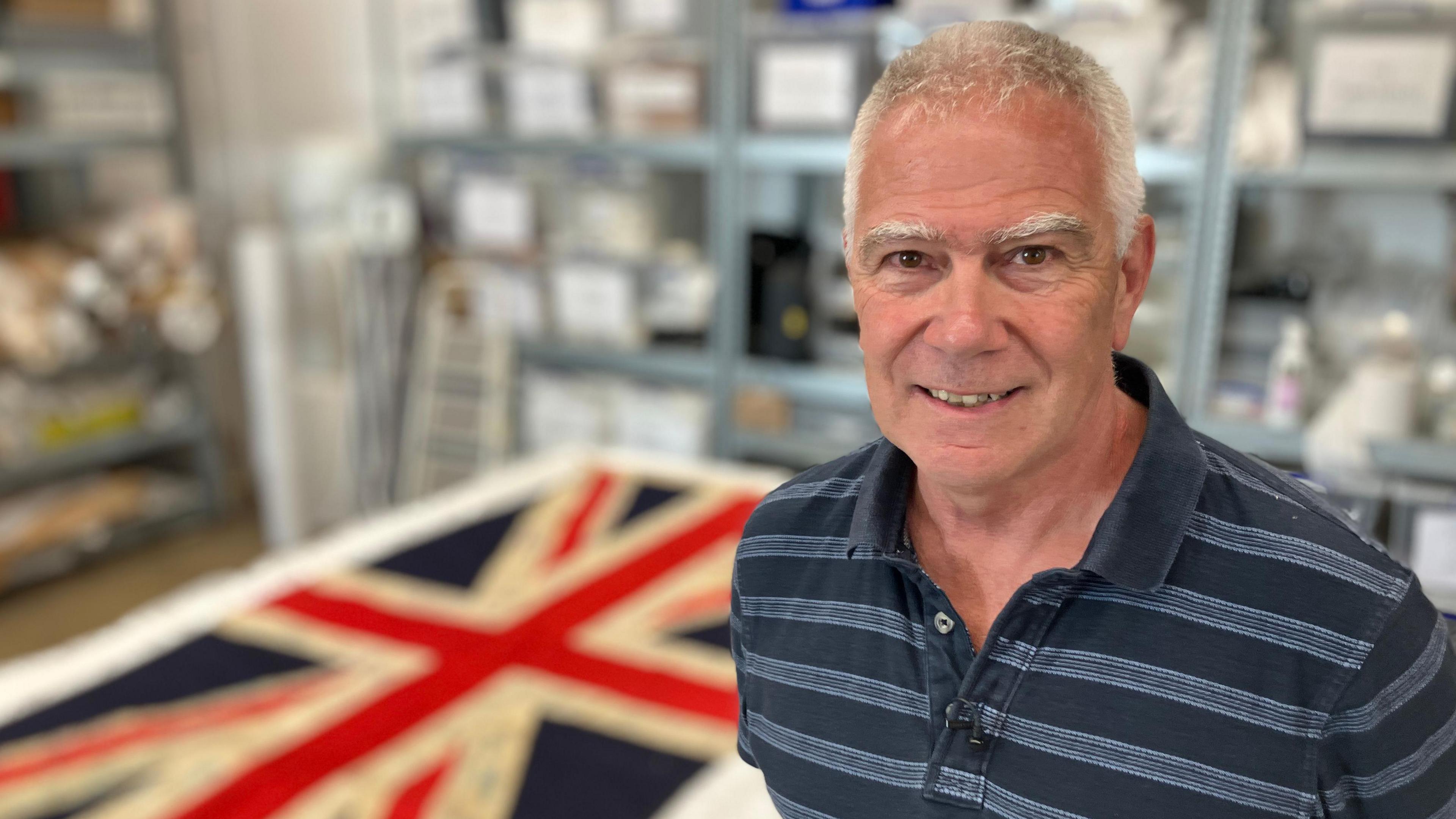Memories of two survivors of Japanese PoW boat

Thomas Jones (left) and Cyril Mace (right) were among the captured British servicemen aboard the ship when it sank
- Published
The families of two men who survived the sinking of a Japanese prisoner of war ship during World War Two have told their stories to mark 80 years since VJ Day.
There were 1,800 prisoners aboard Lisbon Maru when it sank in the South China Sea on 2 October 1942, including Sgt Cyril Mace from Shipston-on-Stour in Warwickshire and Naval Reserve Thomas Jones from Wargrave in Berkshire.
Sgt Mace spent months in a Chinese fishing community before being recaptured but Mr Jones was recaptured soon after the sinking and spent the rest of the war in a Japanese prisoner of war camp.
His grandson, Anthony Jones, runs the Lisbon Maru Memorial Association, which tells the stories of those onboard the ship.
More than 200 people from the ship later died in captivity in Japanese camps.
Mr Jones, who lives in Solihull, said his grandfather was tortured in Osaka before his eventual release at the end of the war.
He said: "I remember my nan saying that VE day was a celebration for the country.
"She was in London, working as a children's nurse at the time and everyone was celebrating in the streets. But for her there was no celebration because the love of her life was still a prisoner of war."

Anthony Jones wants to tell the stories of all 1,800 captured British servicemen aboard the Lisbon Maru
Of the 1,800 British servicemen aboard Lisbon Maru, 828 died.
But Barbara Harris, the daughter of Sgt Mace, said: "Somehow dad got into a current and drifted out and he was in the water then for about two days."
She said he was then "picked up by a Chinese fisherman on a different island and he was there for three months because they kept him hidden".
He was eventually recaptured after the Japanese threatened the Chinese with execution for sheltering him and he was sent to a camp in Kobe.
After the war be became a village postman in Warwickshire and passed on to his family one of his most prized possessions - his belt.
He had used it to strap himself to the debris of the Lisbon Maru and Ms Harris said it almost certainly saved his life.
He was said to have had a "very laidback" personality and she said: "Dad always said you have to have faith, you have to have faith in life."
Get in touch
Tell us which stories we should cover in Warwickshire
Follow BBC Coventry & Warwickshire on BBC Sounds, Facebook, external, X, external and Instagram, external.
- Published19 June

- Published11 August

- Published14 August
